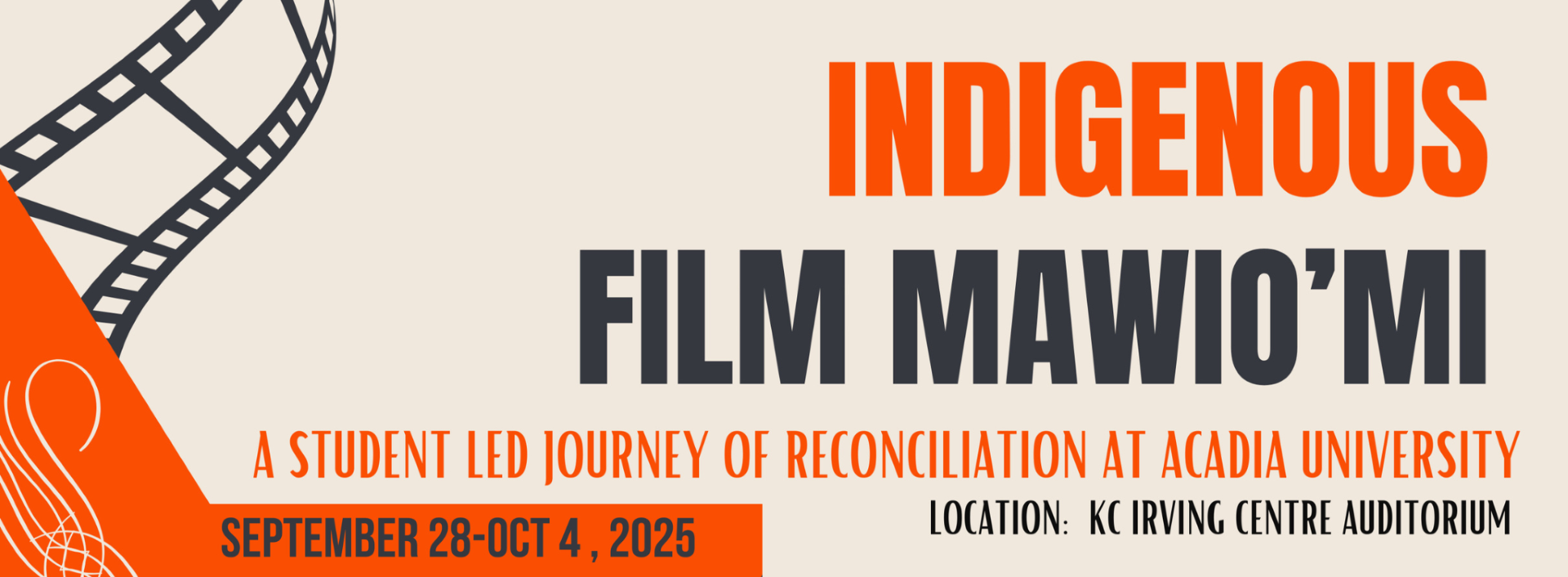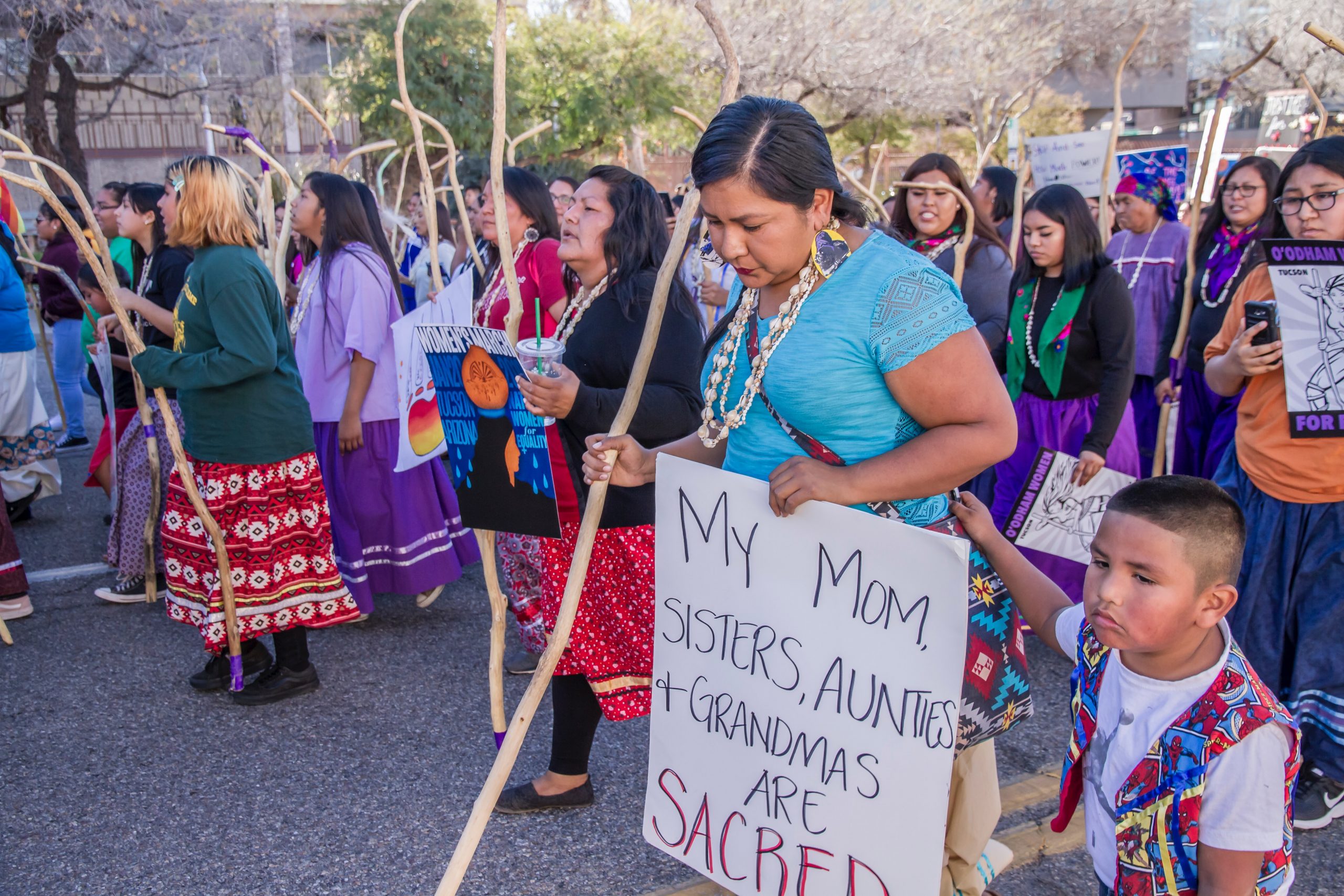The weather may be getting cooler in Wolfville, but the AcadiaU campus is about to warm up, becoming a place where Indigenous stories and teachings are shared, and students learn more about what it means to work together, as young leaders stepping up to fill a gap on our campus, hoping to contribute to the advancement of truth, reconciliation, and democracy in our own backyard.
Do you remember where you were and what you did last year on September 30th? Let’s be honest: September 30th often seems to students like a long weekend bonus – no class, a chance to sleep in, and catch some rays. But what if, this year, you do something that matters? Something ‘event’ful? Perhaps this year, that date will be particularly memorable if you take up this opportunity!
From Sunday, September 28th to Saturday, October 4th, AcadiaU students are inviting you, students, faculty, community and local members to show up for something different that will illuminate Indigenous histories and contemporary realities: the first-ever Indigenous Film Mawio’mi at our University, THE 2025 ACADIA UNIVERSITY INDIGENOUS FILM MAWIO’MI.
Including the National Day for Truth and Reconciliation on September 30th, Treaty Day in Nova Scotia on October 1st, and concluding with the annual National Sisters in Spirit Day of Vigils for Missing and Murdered Indigenous Women and Girls and Two Spirits on the afternoon of Saturday, October 4th, the Mawio’mi will be a student-powered film festival centred on stories of resistance, resilience, and resurgence. It’s free. It’s on campus. And the best part is that it’s an
opportunity to learn from and listen to Indigenous people through incredible movies and stories that challenge, inspire, and, if we let them, transform us.
Hosted in partnership with the AcadiaU Welkaqnik Indigenous Gathering Space, the Town of Wolfville, and the Department of Community Development, Nutrition and Dietetics, Politics, Sociology, Women & Gender Studies, and the Vaughn Memorial Library, the 2025 Indigenous Film Mawio’mi provides an opportunity to watch, reflect and choose to fill the gap.
Importantly, this is a student-led initiative! Students from across the campus community wanted to do something together for our campus and the local community. Given that sharing our stories with each other is at the heART of being human, they’ve co-organized this event, which runs for an entire week. They’re hoping that sharing screen time together will move our campus and local community into an individual and collective discovery about the First Peoples of this land… and move us towards the recovery of ‘right relations’ with Indigenous peoples in Canada and elsewhere. Yes, there will be films, but also conversations. Yes, there will be free refreshments, but also a chance to reflect and reconnect with each other, with the land, and with history.
Amplifying Indigenous voices reveals a legacy of intergenerational trauma and equally important, stories of resistance, resilience and resurgence… the 3Rs you might not have heard much about, yet! Students co-organizing and co-hosting this special week-long event are showcasing Indigenous films, including powerful documentaries that take us behind the scenes and behind the headlines of mainstream media. These films focus on contemporary crises, both past and current, near and local, and taking us into the hearts of Indigenous homes and communities across Canada, sharing profoundly moving personal stories.
Some of our sister universities in the region have showcased Indigenous film festivals on their campuses. So why should Acadia join them now? In a feature story in The Medium, the
University of Toronto Professor Ken Dorry explains that “when examining Indigenous literature or film as a non-Indigenous person, he wants to try and see it as much as possible through the lens of Indigenous ways of thinking and understanding stories.” With this in mind, he borrowed inspiration from Dr. Jo-Ann Episkenew, a Métis writer and scholar who passed away in 2016, and her book ‘Taking Back Our Spirits’. In her book, she shares that most of her university courses are “predominantly centred around European settler traditions and culture”. Dr. Derry noted, “That mirrors my experience too!”
How about you? How many of your courses have centered Indigenous perspectives? Whose stories have shaped your education? Whose voices have you yet to hear?
Every person in Canada has a role to play in reconciliation, including you. The film festival is an opportunity to come watch a film and reflect on our role in reconciliation. It’s a chance to pause, reflect, and ask yourself: What does my role in reconciliation look like? Attending Indigenous Film Mawio’mi 2025 is one answer. It might be your first step, ever. Campus life is about being part of a community that’s willing to learn, unlearn, and grow together. This free, week-long film festival is your invitation to do that.
Wherever we call home, as members of Acadia’s campus, on September 30th, the annual National Day for Truth and Reconciliation across Canada, we have an obligation to think about what reconciliation looks like in practice. It is an opportunity to engage with Indigenous perspectives as lived realities. These films challenge us to confront uncomfortable truths, to consider our role in systems of inequity, and to imagine how we can contribute to the realization of more just futures. Brynn Niblett, a WGST student at the U of Alberta, shares some insights on what you can learn by doing so:
By reclaiming their narratives and their humanity, Indigenous filmmakers engage in a powerful act of decolonization. They imagine and embody a world in which change isn’t just possible, it is necessary. Through a variety of genres and filmmaking styles,
these films provide powerful glimpses into the strength and resilience of Indigenous communities who continue on in spite of the violence of colonialism.
This is your opportunity to engage with Indigenous voices on their own terms. To be moved. To be challenged. And perhaps, to begin imagining what meaningful change could look like on this campus.
Since 2009, the Mawio’mi, a Mi’kmaw word meaning “gathering”, has become a vibrant community celebration, an opportunity for reflection, and an opportunity for expression in the face of ongoing human rights violations in Canada. For over two decades, our campus community has invited Indigenous peoples from across Canada to share their experiences and priorities on diverse issues via keynote talks, sharing circles, memorials and vigils, art exhibits, and storytelling.
Last year, the Kesalul! ReconciliACTION Mawio’mi in Fall 2024 reminded us that reconciliation is about listening and learning from Indigenous peoples, finding courage to face unsettling historic truths and unacceptable contemporary socio-economic and political realities, and taking up the opportunity to foster new relationships with Indigenous peoples.
This year, the 2025 Indigenous Film Mawio’mi continues our university’s tradition of making space to come together via campus-community partnership. Students are co-hosts and co-organizers of the festival; their collaborative action to fill a gap in our community fits these unprecedented times, given that, across time and space, youth have long been agents of change, seeking opportunities to unsettle the status quo to advance human rights, equity and social justice and more recently, eco-justice.
Mark your calendars, gather your friends, family, roommates, and fellow athletes and take part in this historic, timely Indigenous Film Mawio’mi. Whether you attend one screening or the whole week, you will walk away with stories that stay with you, questions that push you, and the possibility of transformation.
The program follows below and is also available, thanks to the Town of Wolfville, on Valley Events Website (https://valleyevents.ca)





